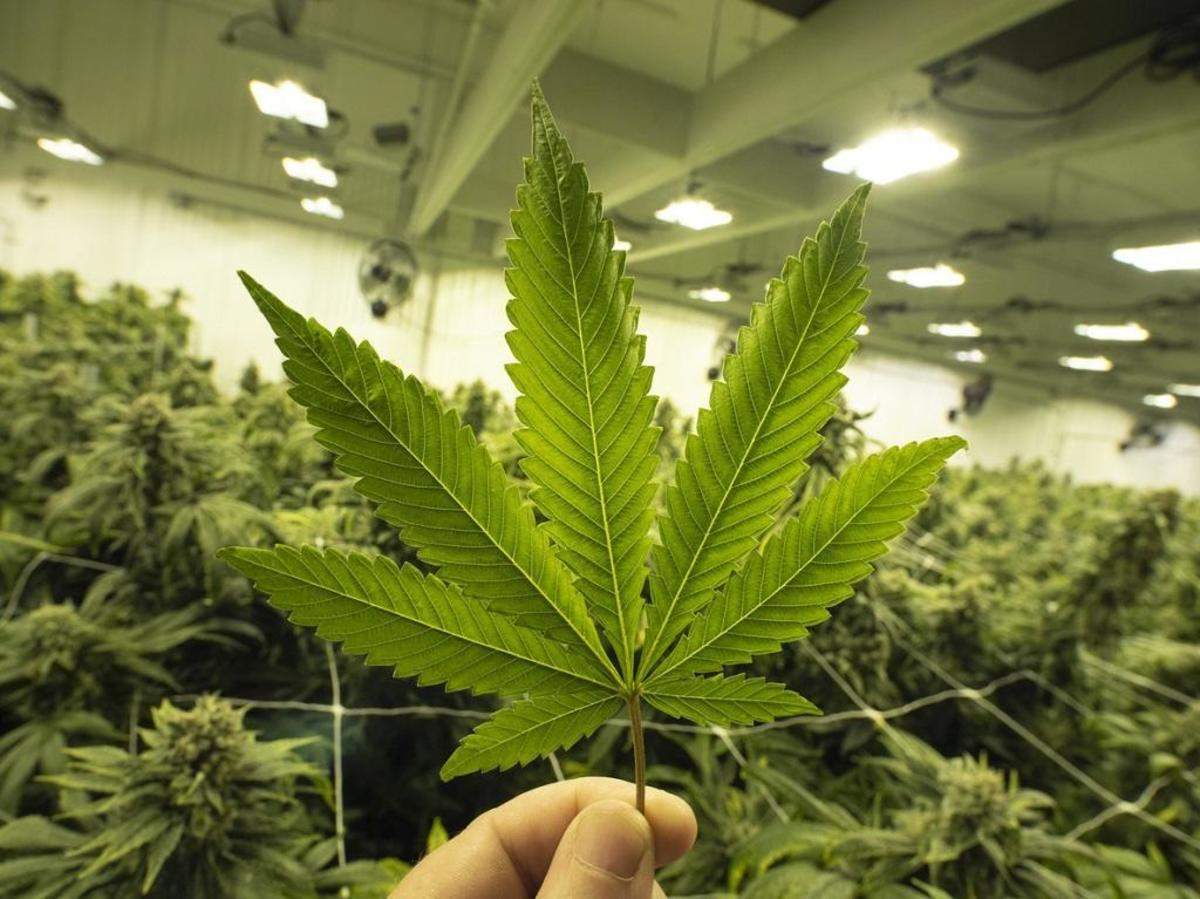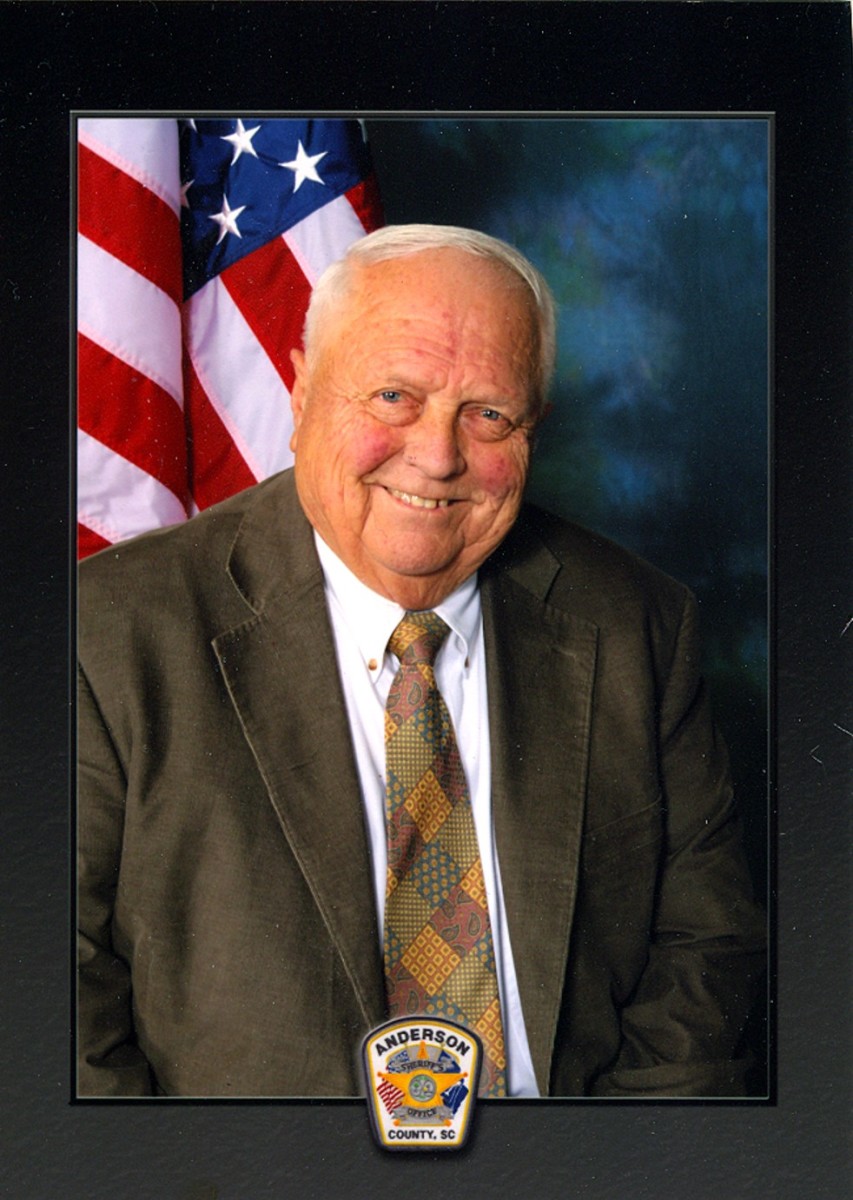Should Marijuana Be Legalized for Medical Use?
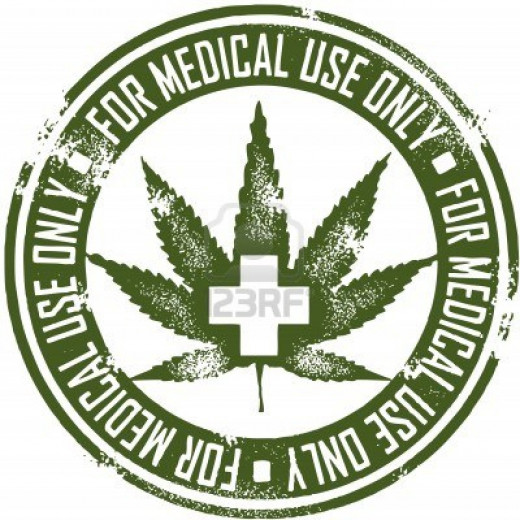
Definition of Marijuana
The National Institute of Drug Abuse defines marijuana as « a greenish-gray mixture of the dried, shredded leaves, stems, seeds, and flowers of Cannabis sativa—the hemp plant» (NIH, 2010). It can be either inhaled, mainly via smoking, or taken by mouth with food or a beverage in the form of tea, by brewing its leaves. The fundamental active ingredient that is held responsible for the known effects is Delta-9-tetrahydrocannabinol (THC). When marijuana is smoked, THC immediately enters bloodstream and affects all organs including the brain; however its effect lasts only 1 to 3 hours. If, on the other hand, marijuana is eaten or drunk, its influence starts about half an hour to a full hour after intake, but effects last up to 4 hours.
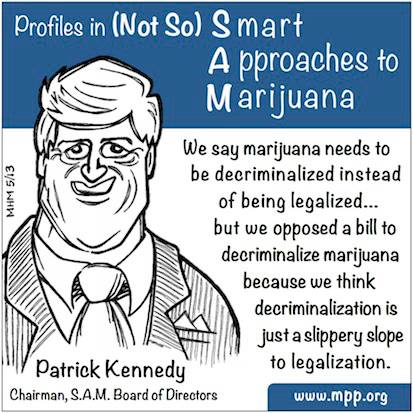
Legislative History of Cannabis
The use of marijuana or cannabis for medical purposes has been a highly controversial issue mostly during the last decades, as there are more than many people in favor of legalizing a banned psychoactive plant that is considered forbidden ever since The Marihuana Tax Act of 1937 (Pub. 238, 75th Congress, 50 Stat. 551 Aug. 2, 1937). In fact, the Act did not actually criminalize marijuana, but imposed punishments to those that possessed cannabis, and a fine that could be as much as $2,000 alongside with incarceration sentences that could reach five years.
It all began when Harry J. Anslinger, the head of the Federal Bureau of Narcotics in the 1930’s, claimed that there had been a rise in criminal activities, which he believed were closely related with people under the influence of smoked marijuana (Harry Anslinger, 1961). The Act raised strong opposition from the American Medical Association’s side (AMA), as fines were mainly imposed to doctors that prescribed marijuana to patients for medical purposes, pharmacists that were selling cannabis in retail and people that manufactured or cultivated the plant. Alternatively, the AMA via Dr. William Woodward, AMA’s legislative counsel, proposed marijuana to be included in the Harrison Narcotics Tax Act instead (Woodward, 1937). However, the bill was finally passed in favor of Anslinger, who also referred to the International Opium Convention, the first drug control treaty signed in 1912 (January, 23) at The Hague (The Daily Picayune, 1912). At first the treaty was signed by the United States, Germany, Russia, China, Japan, the United Kingdom, the Netherlands, France, Portugal, Siam and Persia, but it soon was applied worldwide and became part of the Treaty of Versailles. According to that treaty cannabis was considered a drug rather than medicine.
As soon as that Act was passed it immediately was put in action and the first arrests took place. Things changed, though, in 1969, when the Congress pronounced that particular sections of the Act were a violation of the Fifth Amendment; hence, the Act was partially unconstitutional. Alternatively, they passed the Control Substances Act, that became part of the United States Federal Law under the name of Comprehensive Drug Abuse Prevention and Control Act of 1970 (Pub. L. No. 91-513, 84 Stat. 1236 Oct. 27, 1970).
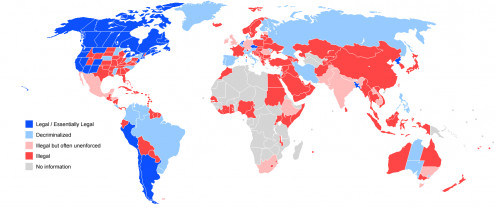
People Using Medical Marijuana in the U.S
State
| Medical marijuana patients
| State population
| # of patients per 1,000 state residents
|
|---|---|---|---|
1. Alaska
| 1,246
| 722,718
| 1.72
|
2. Arizona
| 33,601
| 6,482,505
| 5.18
|
3. California
| 553,684
| 37,691,912
| 14.69
|
4. Colorado
| 107,666
| 5,116,796
| 21.04
|
5. Connecticut
| N/A
| 3,580,709
| N/A
|
6. DC
| N/A
| 617,996
| N/A
|
7. Delaware
| 21
| 907,135
| N/A
|
8. Hawaii
| 11,695
| 1,374,810
| 8.51
|
9. Maine
| 16,444
| 1,328,188
| 12.38
|
10. Massachusetts
| N/A
| 6,587,536
| N/A
|
11. Michigan
| 122,349
| 9,876,187
| 12.39
|
12. Montana
| 8,717
| 998,199
| 8.73
|
13. Nevada
| 3,558
| 2,723,322
| 1.31
|
14. New Jersey
| 239
| 8,821,155
| 0.03
|
15. New Mexico
| 8,188
| 2,082,224
| 3.93
|
16. Oregon
| 56,939
| 3,871,859
| 14.71
|
17. Rhode Island
| 4,466
| 1,051,302
| 4.25
|
18. Vermont
| 559
| 626,431
| 0.89
|
19. Washington
| 99,943
| 6,830,038
| 14.63
|
Total:
| 1,029,315
| Average
| 7.777
|
* State population numbers are estimates from the US Census Bureau's 2011 data.
* Patient numbers were last updated in December 2012.
(Taken from: http://medicalmarijuana.procon.org/view.answers.ph...
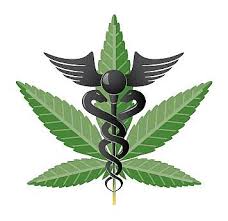
Use of Cannabis
The University of California's Center for Medical Cannabis Research, which is responsible for coordinating rigidly precise scientific studies to determine whether cannabis could be used for medical reasons, stands in favor of the use of cannabis for treating medical conditions and it has back up evidence for it. Based on their findings, patients find relief from pain either caused by injuries or strokes and HIV, among others. Clinical studies have also shown that patients with HIV and AIDS experienced significant relief from pain due to nerve damage, as a symptom deriving from their disease, after they had smoked cannabis. The same applies to people with a neurological disease called multiple sclerosis (MS), based on another clinical study that was initiated and conducted by the University of California, San Diego School of Medicine. Their findings, as published in the Canadian Medical Association Journal on May 14, 2012, back up the theory that cannabis, when smoked, could become an effective treatment for the MS symptoms and in particular spasticity.
On top of that, the aforementioned Center for Medical Cannabis Research has presented a Report to the Legislature and Governor of the State of California in 2010 that summarized the findings of a 10-year research related to the use and benefits of cannabis for medical reasons and treatments. Evidence coming from that way justify the benefits of marijuana when used for medical reasons.
Going through the US government’s repository site, where someone can find peer-reviewed scientific research, that of the infamous PubMed Central, one will find approximately:
- 2,100 papers published in 2011;
- 1,950 in 2010; and another
- 2,700 papers published the year before that.
It is by far a huge number of research and studies published referring to the therapeutic results of cannabis. A drug needs a lot less research to be approved by the FDA and the majority of modern research is completely opposed to the government’s stance to consider cannabis as a substance that is not only dangerous, but should also be criminalized for the sake of public health and safety (norml.org ).
Another study that was conducted by the Institute Biology Leiden, Leiden University in The Netherlands, reports that there have been about 37 controlled studies/trials that were focused in providing evidence and information upon the efficacy of marijuana as well as its compounds, from 2005 and onwards. The studies used approximately 2,500 people/subjects, which is a number that outcasts the number of subjects and trials the FDA uses to determine whether to approve a drug or not.
Livestrong Foundation, a non-profit organization based in the United States that was founded in order to provide various types of support, inspire and empower cancer patients, claim in a post in May 5, 2011 that marijuana is an effective pain reliever, among others. Neuropathic pain and chronic pain are eased by the use of marijuana, as determined after a study that was conducted in February 2009 by Dr. Ellis and was published in the scientific journal called Neuropsychopharmacology (RJ Ellis, et. al.; February 2009). During that study, patients that experienced either chronic or neuropathic pain were given medical marijuana; as a result, the pain they were experiencing was lessened by 30%, compared to patients that didn’t take medical marijuana.
Furthermore, it is commonly seen among patients to experience a phase where they lose their appetite and consequently lose weight. Losing weight in different situations could be a blessing; however, when a patient loses weight uncontrollably, recovery is seriously blocked. In order to be able to fight infection and manage to restore/heal tissue or cells the body needs tremendous amounts of energy that can be taken from food intake. In cases when patients experience decreased appetite, medical marijuana is proven to be effective and cause increase of the patient’s desire to eat. Also, there are proven beneficial effects of using medical marijuana to fight nausea, another side effect from treatments such as chemotherapy. An active ingredient found in marijuana called THC (Delta-9 tetrahydrocannabino) appears to limit symptoms such as vomiting and nausea, most commonly experienced by cancer patients. The same benefits are also evidenced for people experiencing spasticity, which is the condition when muscles feel tight and twitched, thus makes it very difficult to live a normal everyday life.
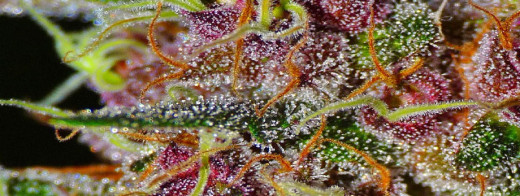
Conclusion
Undoubtedly, the world will see lots of opposing viewpoints in regards legalization of medical marijuana in the years to come, as people and governments are not yet convinced of which is the right decision, if any. Truth is that further research with positive and encouraging findings can provide people with the required knowledge and solid evidence that would liberate them from their skepticism. Being open-minded and looking at the greater picture definitely helps evolving societies and transforming them to caring hives, where each bee counts. Maybe that way, we could provide more assistance to those in need.
As for laws, I personally agree with Jimmy Carter, former President of the U.S, who said that:
"Penalties against possession of a drug should not be more damaging to an individual than the use of the drug itself, and where they are they should be changed."
In Greece we have a saying: "Do not look at the tree and miss the forest", which means do not lose the real goal by setting your mind on irrelevant and insignificant things.
Maybe it is time to look a bit deeper at the potentials of this drug that can make a difference in patients' lives.
Thank you for reading.
Please feel free to share your opinion and let the world know what you believe.
Be blessed,
Litsa
Your opinion counts...
Should medical marijuana be legalized?
Did you find this article useful?
© 2013 litsabd

